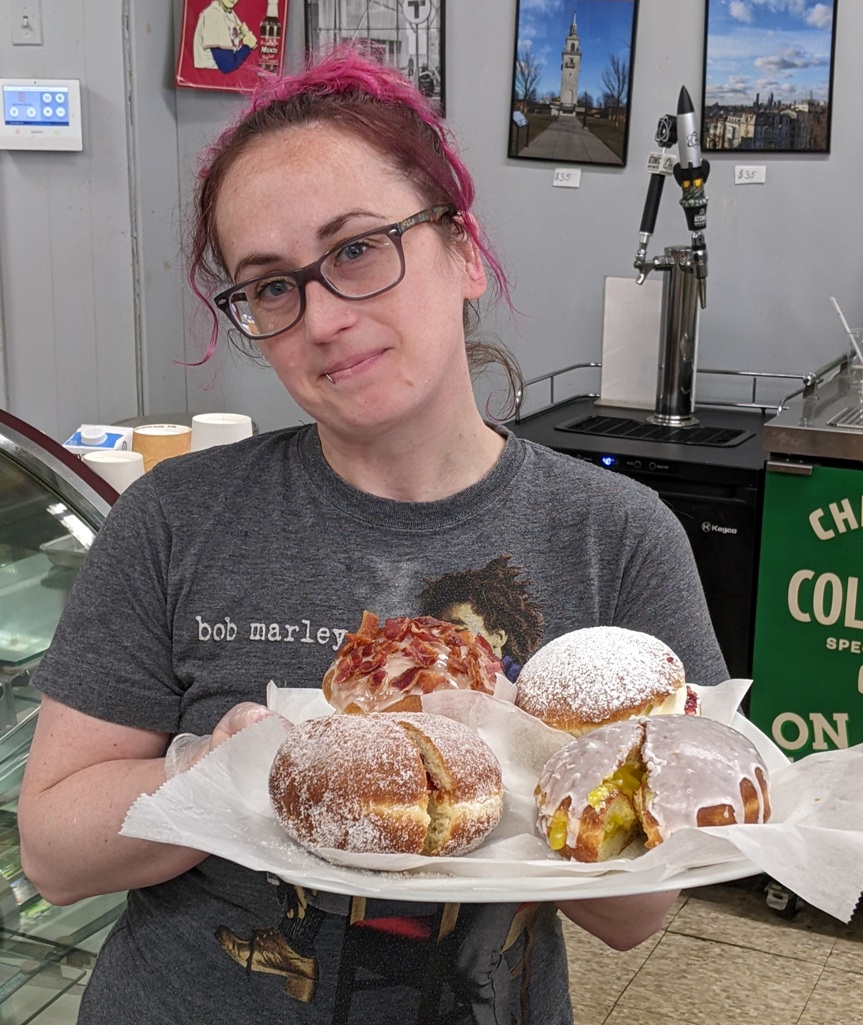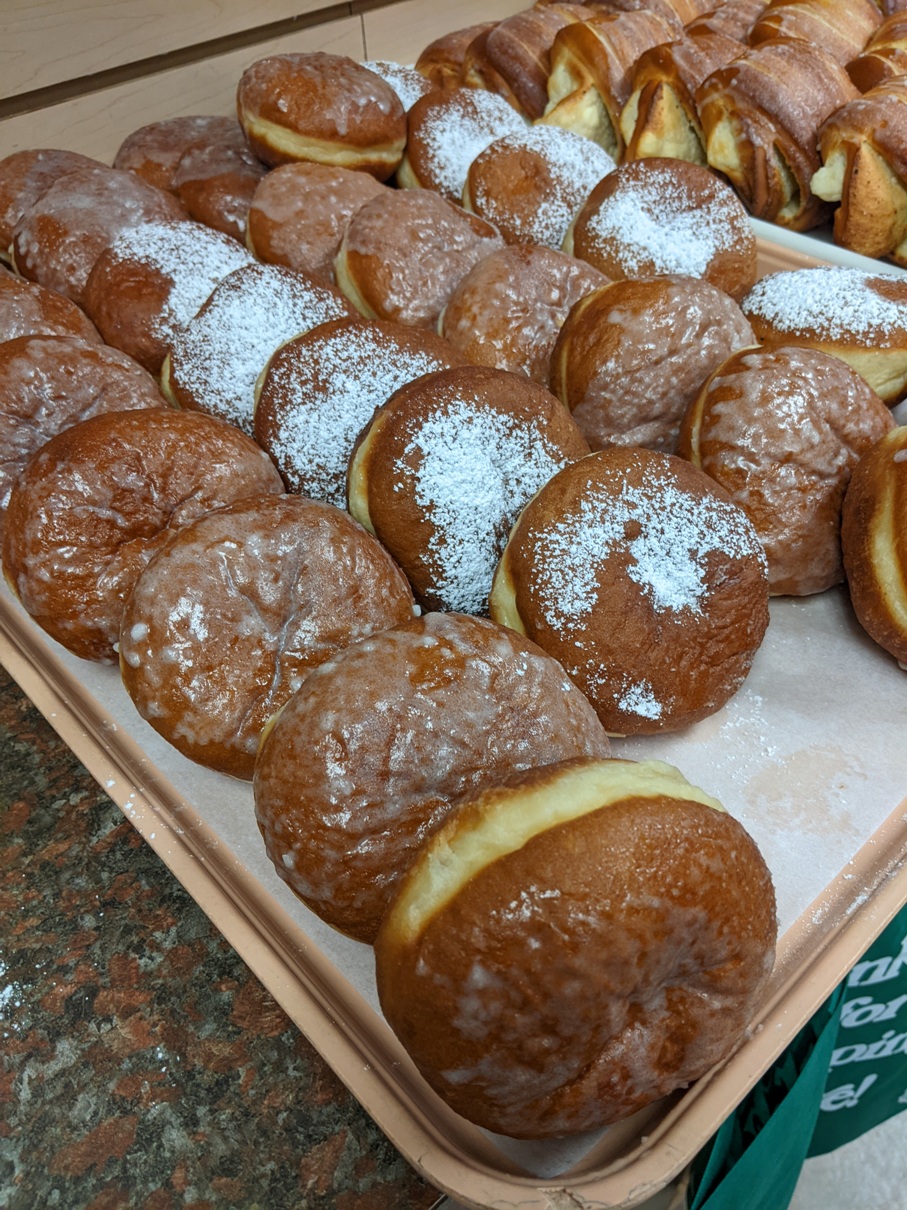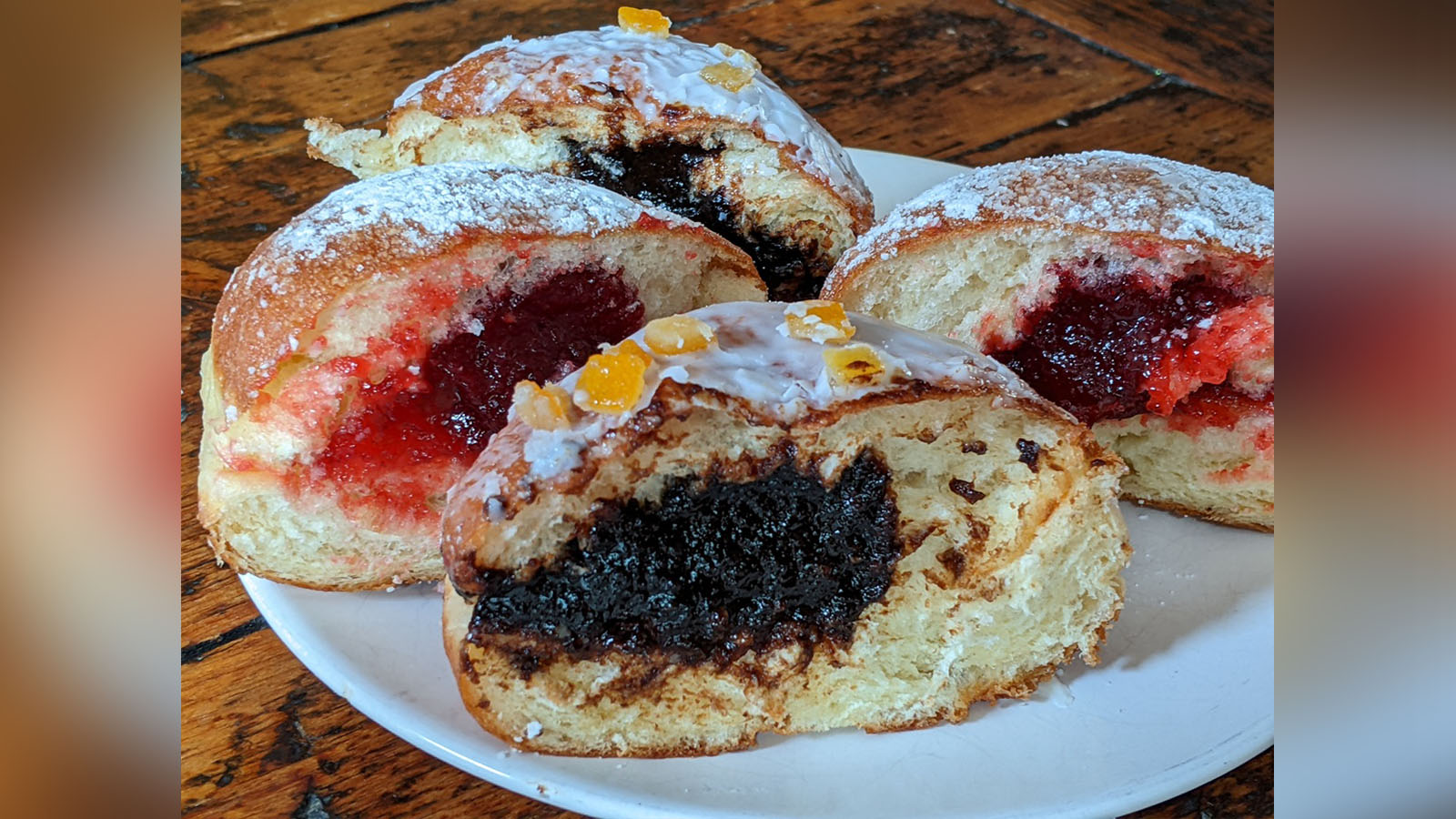The Boston area may be the birthplace of a now-global morning pastry chain. But even before it pivoted to churning out lattes, the company’s doughnuts were nothing to write home about.
For a truly satisfying doughnut experience, treat yourself to some paczki (pronounced POONCH-key). These traditional pastries can be found at small markets in the neighborhood known as the Polish Triangle in Dorchester, a short walk from Andrew Square.
What are paczki?
In the world of doughnuts, there are two types: cake (the ones with a hole) and filled. Traditionally, paczki are filled with raspberry jam, stewed prunes, cherry preserves, or rose petal marmalade. (Yes, it tastes like roses!) The shops in the triangle also sell paczki with chocolate, buttercream, Nutella, maple bacon, and other “modern” fillings.
Unlike typical chain store doughnuts, paczki have a slight crust and a bit of a chew. The yeast dough has less sugar and provides more depth of flavor than standard American doughnuts. The finishing touch is a dusting of powdered sugar or a light glaze, sometimes studded with dried orange peel for a citrusy sparkle.
Where to get paczki in Boston
Depending on the day, some paczki in the Triangle markets are made on site. Others are delivered regularly from established Polish bakeries in Worcester and New York. This just widens the variety—and makes it worth visiting each market to find your favorite.
Dawn Morris is the pastry chef at DJ’s European Market and Deli. Like any baker, her day starts while it’s still dark outside—to make sure paczki are ready for commuters to munch on while walking to the T.

Morris explains that in addition to the usual flour, butter, eggs, milk, and yeast, she adds vinegar to the dough. (Some bakers use alcohol.) As the paczki fry, the vinegar evaporates—limiting the amount of oil they absorb. This secret helps give paczki their light, yet still substantial, texture.
Paczki have been made in Poland for hundreds of years, originally as a tasty way for households to use up foods that were forbidden to eat during the pre-Easter season of Lent. Even today, many paczkis are eaten on the Thursday before Ash Wednesday—a Polish take on Fat Tuesday. Put another way: Mardi Gras has king cake; Fat Thursday has paczki!
We’ve got three great shows that highlight the best of Boston! Check out Boston Rob Does Beantown, Blind Kitchen Boston and Eat Play Stay Boston.
Morris says that she works all night long to make enough for the holiday. And this year, the tiny Baltic European Deli overflowed with 1,000 paczkis for Fat Thursday.
Dorchester’s Polish Triangle was formed when immigrants settled there in the early 1900s. While the demographics have changed over time, the area still hosts a large Polish community. The small local markets offer a taste of home, including imported packaged foods, condiments, and spices; prepared foods such as borscht and stuffed cabbage; breads and pastries; sandwiches – and, of course, deli cases stocked with Polish meats, sausages, and cheeses. (Fresh kielbasa on the grill, anyone?)

And whether they’re longtime locals of Polish heritage—or new Boston residents from across the country—everyone enjoys their paczki. If you need a breakfast that will keep you fueled all morning or want to impress the work crew with a box of not-your-ordinary doughnuts, stop by one of these stores:









